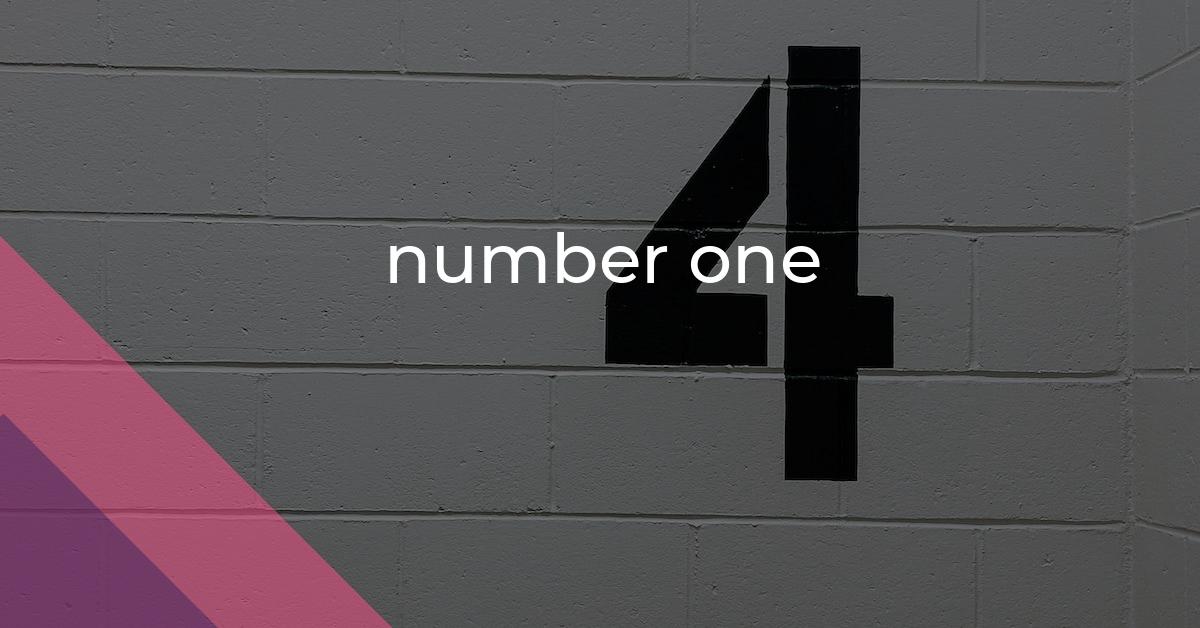number one: Idiom Meaning and Origin
What does ‘number one’ mean?
The idiom "number one" means the top or best in a particular category or ranking.

Idiom Explorer
The idiom "second-rate" refers to something of inferior quality or standard compared to others in the same category.
The idiom "reign supreme" means to have complete control or be in a position of undisputed power or authority.
'Pull rank' is an idiom that means to use one's higher rank or position of authority to gain an advantage or to assert dominance over someone else.
The idiom "play first fiddle" means to have the dominant or leading role in a situation or group.
The idiom "on top of" means to be in control of a situation or to be aware and knowledgeable about something. It implies being proactive and staying updated to stay on track.
The idiom "on top" means to be in control or in a dominant position, especially in a competitive situation.
The idiom "one up" means to outdo or surpass someone in a competitive or comparison situation.
The idiom "one step ahead" means being in a position of advantage or being more prepared than others in a given situation.
The idiom "one-star" refers to a rating or evaluation of something as being of extremely poor quality or deserving of the lowest possible score.
The idiom *one and the same* means that two or more things or people are identical or indistinguishable from each other.
Origins Unveiled
The idiom "number one with a bullet" is a variation of the original "number one" expression. It is often used to describe something or someone that is rapidly gaining in popularity or success. The addition of "with a bullet" emphasizes the speed and momentum of the rise to the top. This idiom is commonly used in the music industry to describe songs that quickly climb the charts and become popular hits. In this context, "number one with a bullet" indicates the rapid rise in popularity and success of a particular song.
Another idiom related to "number one" is "look for number one". This expression is often used to convey a sense of self-interest or prioritizing oneself above others. It suggests a focus on personal well-being and success, often at the expense of others. In a competitive or individualistic context, someone who is "looking out for number one" is determined to succeed and will prioritize their own interests over those of others.
The idiom "come first" is closely related to the concept of being number one. It is used to indicate that someone or something is the top or highest priority. Whether in a race, a competition, or a ranking system, coming first means achieving the highest position. This idiom is often used to emphasize the importance of winning or achieving success.
When something is described as "first-rate", it means that it is of the highest quality or standard. This idiom is used to denote excellence or superiority. It can be applied to various aspects of life, such as products, services, or performances. Saying that something is "first-rate" emphasizes its exceptional nature and sets it apart from others.
The idiom "look out for number one" is similar to "look for number one" in that it also conveys a sense of self-interest and prioritizing oneself. However, the addition of "look out" suggests a more cautious or defensive approach. It implies that one must be vigilant and aware of potential threats or obstacles in order to protect and prioritize their own interests. This idiom highlights the importance of self-preservation and self-advocacy in a competitive world.
Overall, the idiom "number one" and its related expressions convey various aspects of excellence, success, priority, and self-interest. They highlight the significance of achieving the top position, prioritizing oneself, and recognizing the highest quality or importance. These idioms reflect our desire for success and the competitive nature of many aspects of life. Whether in music, personal goals, or everyday choices, the idea of being number one holds cultural importance and continues to be a common expression in our language.
Example usage
Examples of how the idiom *number one* can be used in a sentence:
- She is the number one contender for the championship title.
- My priority is always my number one goal.
- He considers his wife to be his number one supporter.
More "Ranking" idioms



